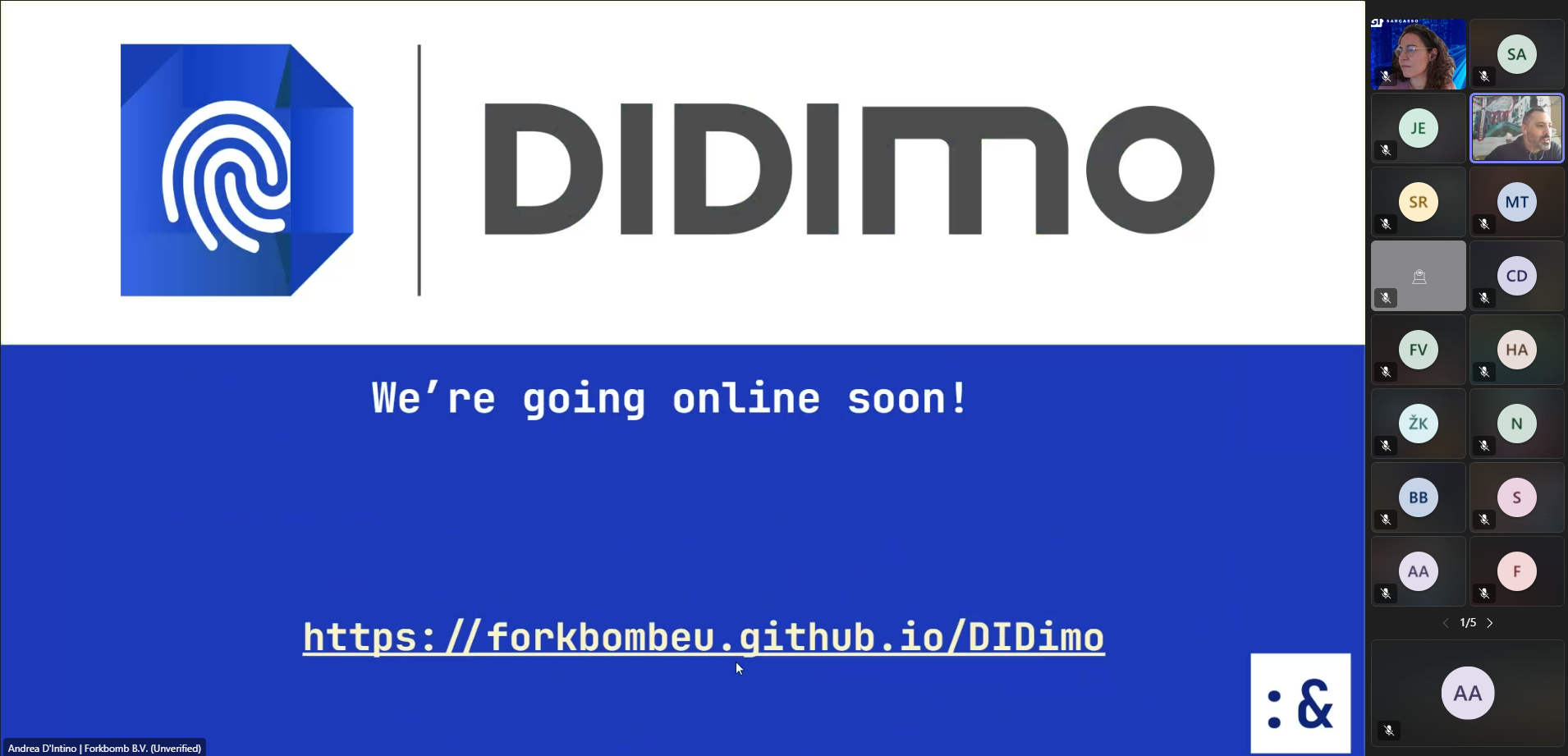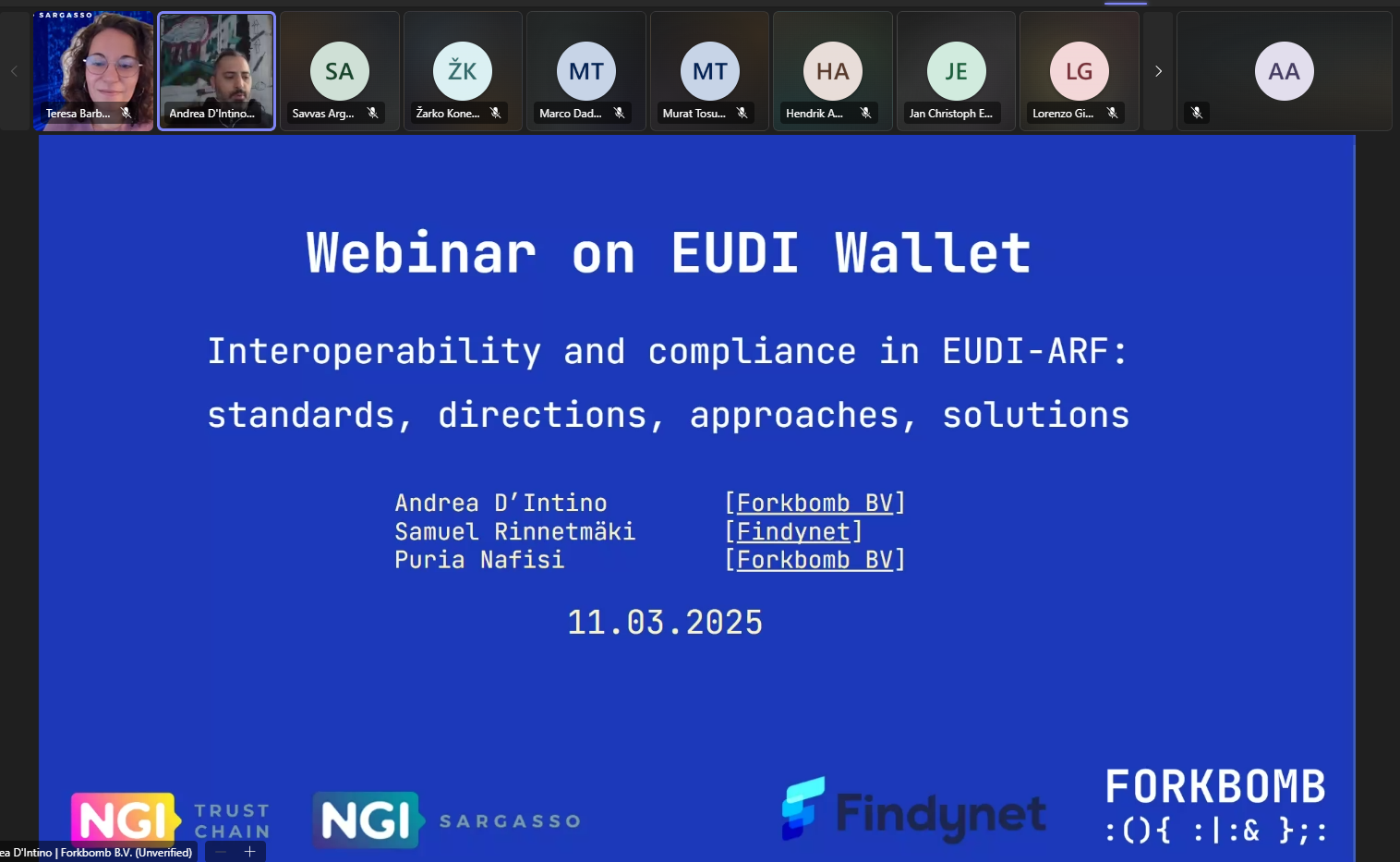A recent webinar, hosted in collaboration with NGI TrustChain and NGI Sargasso, examined the critical aspects of interoperability and compliance within the European Digital Identity Architecture and Reference Framework (EUDI-ARF), offering valuable insights into the standards, directions, approaches, and solutions.
This webinar, specifically designed for the Open Call Winners of the NGI TrustChain and NGI Sargasso Projects, attracted over 80 participants, including developers, innovators, researchers, SMEs, and entrepreneurs working on diverse NGI-relevant topics. Held online on March 12th, 2025, the event featured expert panelists Andrea D’Intino of Forkbomb BV, of the NGI Trustchain OC 1 and 3 projects DidRoom and DIDimo, and Samuel Rinnetmäki of Findynet. Their discussions illustrated the current state and future trajectory of EUDI-ARF, addressing critical concerns and outlining potential pathways for seamless implementation.
The webinar provided a comprehensive overview of the EUDI-ARF landscape, starting with its current status and implementation, and delving into core standards like eIDAS 2.0. Key discussions centered on interoperability challenges, the necessity of robust testing tools for compliance, and ongoing efforts to build a cohesive digital identity marketplace. A significant segment focused on digital wallet requirements, covering the Commission’s regulations, technical specifications, and architectural frameworks, while also addressing the complexities of extending EUDI wallets beyond European borders to ensure global interoperability.

Andrea D’Intino presented DIDimo, an open-source, multiplatform, and multifunctional Identity DID/SSI wallet. This wallet is designed to be compliant with:
- W3C-DID (Decentralized Identifiers): A standard for creating and managing self-sovereign digital identities.
- W3C-VC (Verifiable Credentials): A standard for issuing and verifying digital credentials in a secure and privacy-preserving manner.
- eIDAS 2.0 (based on EUDI-ARF specifications): Ensuring compliance with the European regulatory framework.
DidRoom also incorporates advanced cryptographic and blockchain functionalities, including signatures, multi-signatures, and blockchain interoperability for platforms like Ethereum, Bitcoin, and Hyperledger Fabric. This demonstrates the potential for innovative solutions that combine robust security with seamless user experience.
The webinar provided a comprehensive overview of the key challenges and opportunities in the EUDI-ARF landscape for the two projects’ Open Call Winners. It highlighted the importance of interoperability, compliance, and innovation in building a secure and trustworthy digital identity ecosystem. As the EUDI-ARF continues to evolve, initiatives like DidRoom and the collaborative efforts of projects like NGI TrustChain and NGI Sargasso will play a crucial role in shaping the future of digital identity in Europe and beyond.

